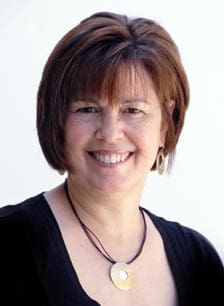Three California winemakers test new techniques for making low-alcohol,
low-calorie and vegan wines
By Laurie Wachter
Wine consumers are increasingly looking for wines that align with healthier lifestyles and ethical treatment of the planet. Three California winemakers are experimenting with alternative products for making these low-alcohol, low-calorie and vegan wines.
Plant-based alternatives
California wineries exporting wine account for 90% of U.S. wine exports. Although less than 5% of California wineries export, those that do face what can, sometimes, feel like mountains of paperwork.

“We’re in more than 36 different countries all over the world,” says Samantha Taylor, winemaker at Hope Family Wines in Paso Robles, Calif. “Every country has its own set of standards, and we have to provide a lot of paperwork, including chemistry data for different allergens. The allergen questions I get from export markets are usually about gluten, milk, eggs and shellfish.”
Taylor’s primary allergen concern is milk-based potassium caseinate in fining agents. She is currently testing her Chardonnay with a plant-based fining agent that substitutes pea protein for the potassium caseinate.
Another reason many wineries are exploring vegan products is the growing consumer demand — and consumers who are knowledgeable enough to look for animal-based additives and preservatives.

“We’ve always had people ask for vegan wines,” Taylor explains, “but we haven’t had anything for them. So this is the start of our journey. I think this is going to be in the forefront from here on out.”
“It’s critical for wineries to listen to the new generations, as they will be the most significant group of consumers going forward,” says Lorenza Allen, technical marketing specialist at Enartis USA. “They are health conscious, and having vegan, low-alcohol and low-calorie wines will be important to them.”
Losing calories
Chris Barrett, winemaker for Pezzi King Estate and Saint Anne’s Crossing in Sonoma County, Calif., has been making wines without added sugar since he took the winemaking helm in 2008. He’s now testing a product that will lower calories further.

“When I first came here, the previous winemaker was heavy-handed with juice concentrate,” says Barrett. “I had to keep our wine club and fan base happy, so I learned how to make the wine they were expecting. But I always made our estate wine how I liked it. Slowly, year after year, I transitioned them to a wine that used less concentrate. They liked it, and it just snowballed.”
The product he’s currently testing imparts a perceived sweetness but has no sugar or calories and presents a nice roundness and mouthfeel. It offers a much safer way to achieve these effects than adding concentrate, which exposes the wine to potential threats from microbes and bacteria and can dull the nose.
Lowering alcohol
“Creating low-alcohol wine is more challenging than making vegan or low-calorie wines,” says Allen. “That’s because there’s no sugar to help compensate for what you’re losing with the alcohol. There are different approaches, from dealcoholization to using different yeast strains to keep alcohol low.”

Casey DiCesare, winemaker at Scheid Family Wines in California’s Monterey County,has already developed a low-alcohol brand, Sunny With a Chance of Flowers, with 9% ABV, 85 calories and zero residual sugar.
“2018 was our first vintage,” says DiCesare. “We don’t pick early, instead letting the vines go to kind-of full ripeness, and we try not to add sugar. We ferment it and make it as big and as lovely as possible, then use a slow, continuous filtration method to remove alcohol down to 9%.”
DiCesare is currently working on a trial of Sauvignon Blanc with one of the new yeasts that reduces the potential alcohol instead of dealcoholizing.
Each of the approaches these winemakers are testing offers a route to “better-for-you” wines for health-conscious consumers of all generations.
Lorenza Allen will be moderating Low Alc, Low Cal & Vegan Winemaking Solutions: Meeting New Consumer Demands at the 11th Annual North Coast Wine Industry Expo (WIN Expo) on November 30, where she will lead a discussion and wine tasting with Chris Barrett, Casey Di Cesare and Samantha Taylor about making better-for-you wines.
Learn more about this session and the upcoming WIN Expo event at wineindustryexpo.com.
________________________________________________________________

Laurie Wachter
Laurie developed her love of analytics and innovation while advising consumer packaged goods companies, including Kraft Foods, PepsiCo and the Altria Group, on consumer and POS data analytics and direct-to-consumer marketing. Today, she writes about the wine, food and beverage industries for a global client base from the Northern California wine country.




